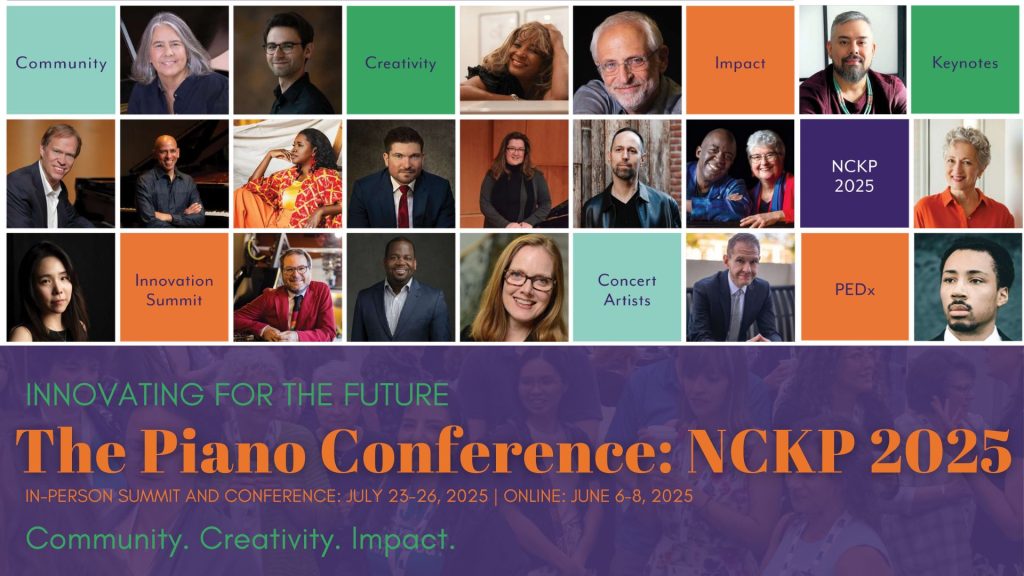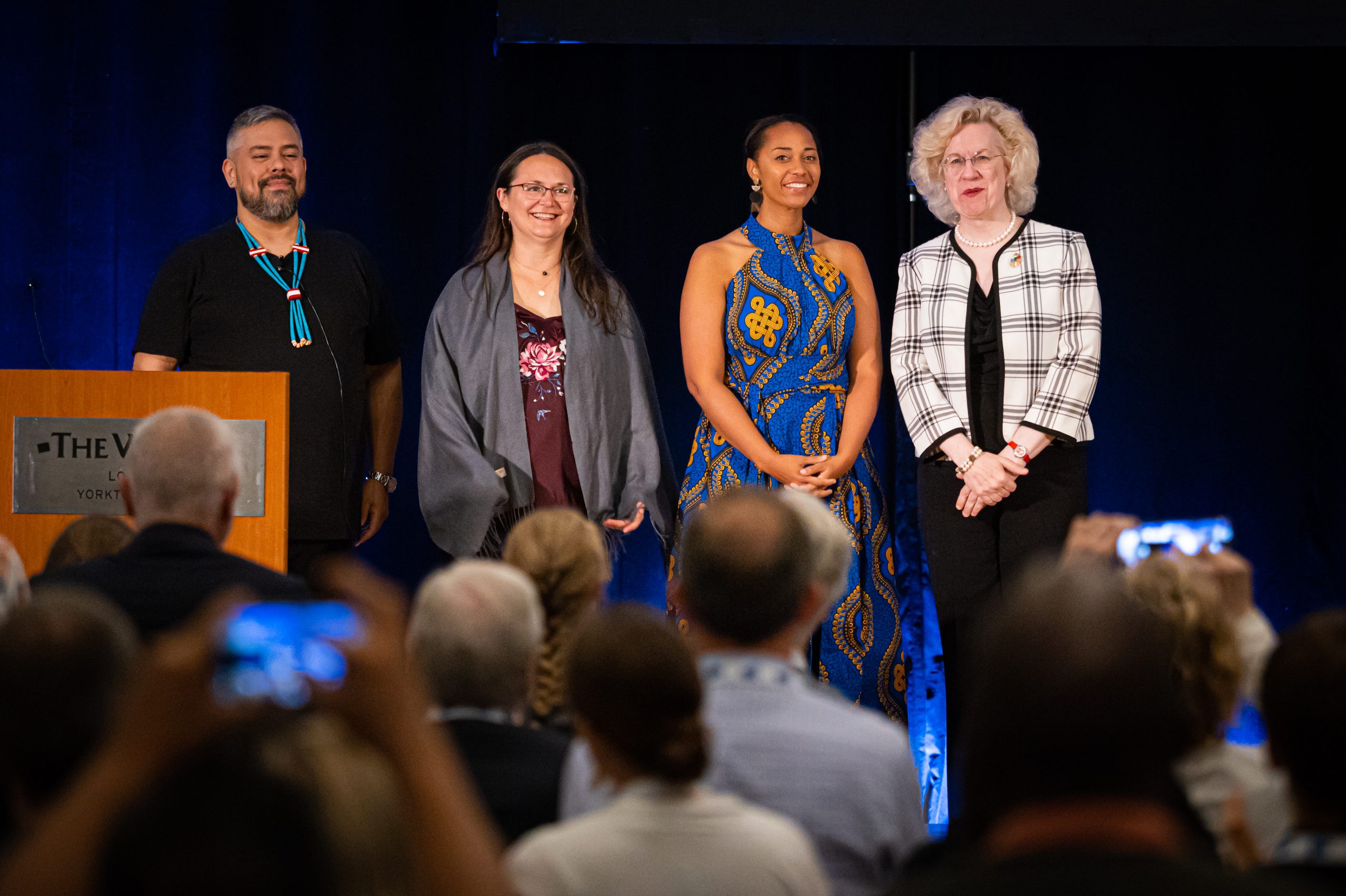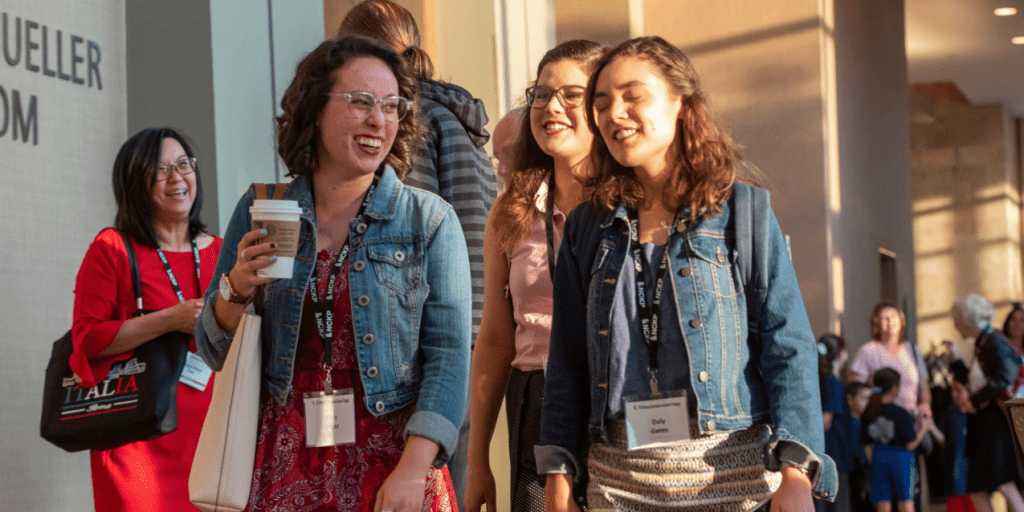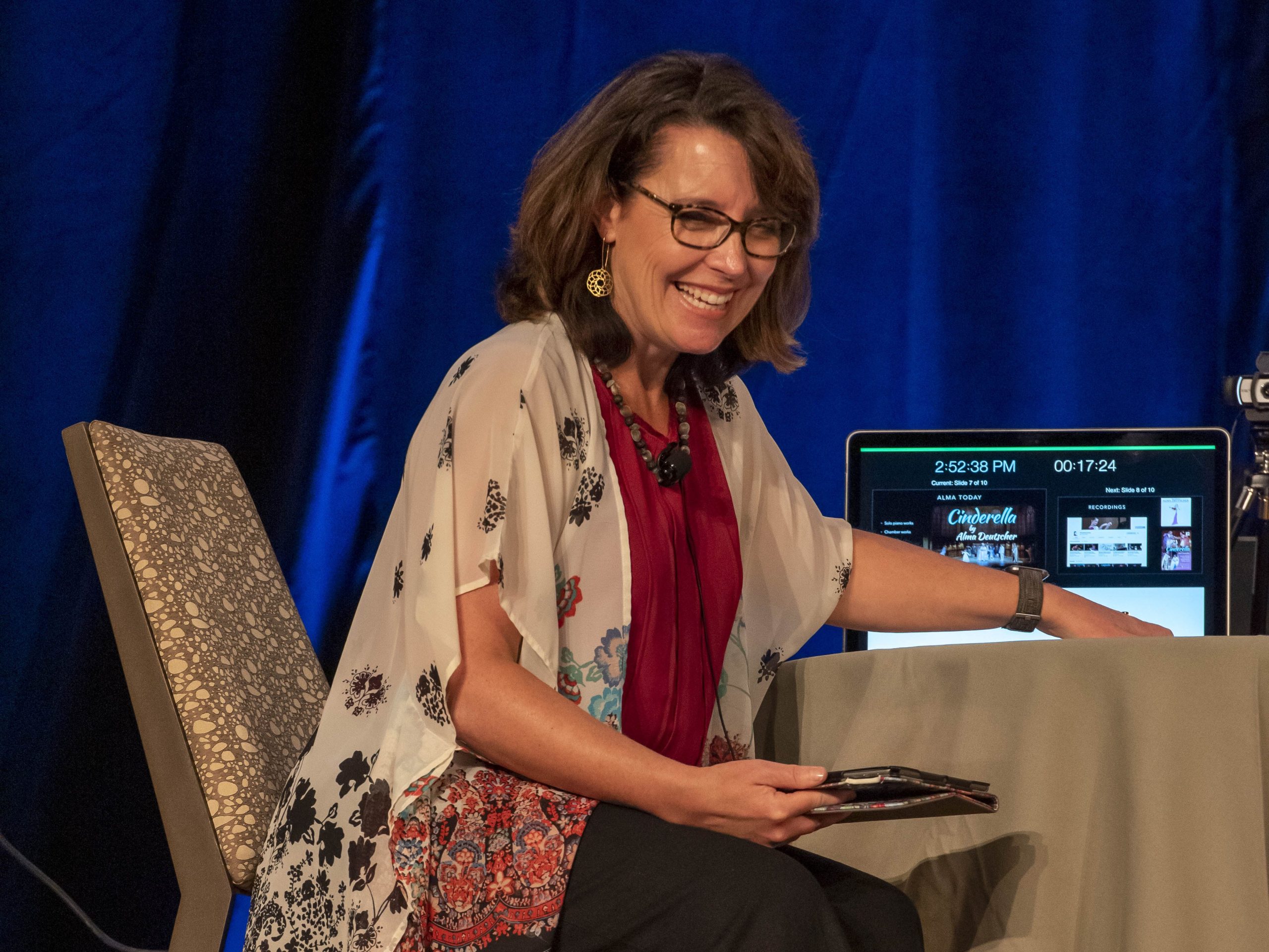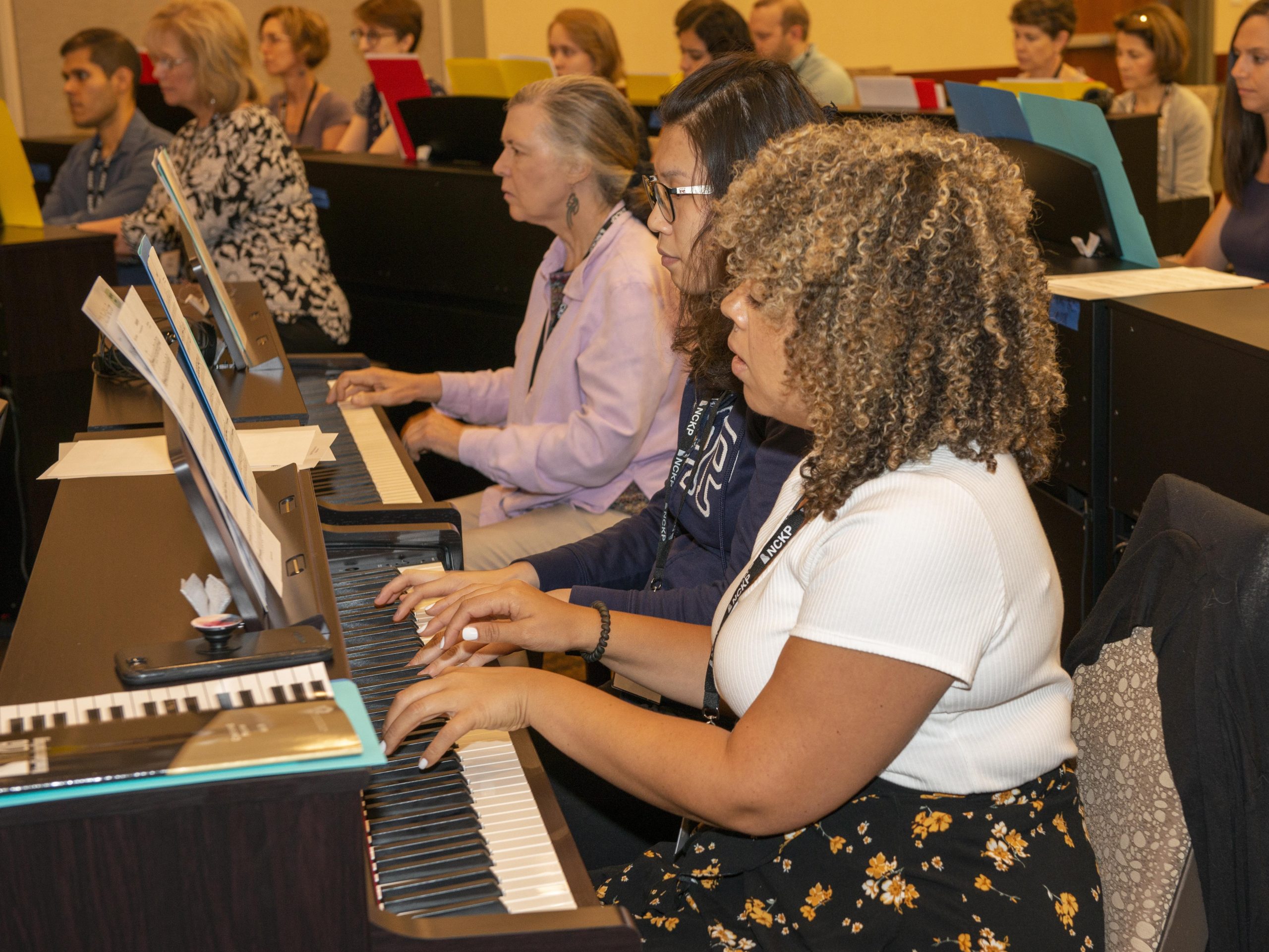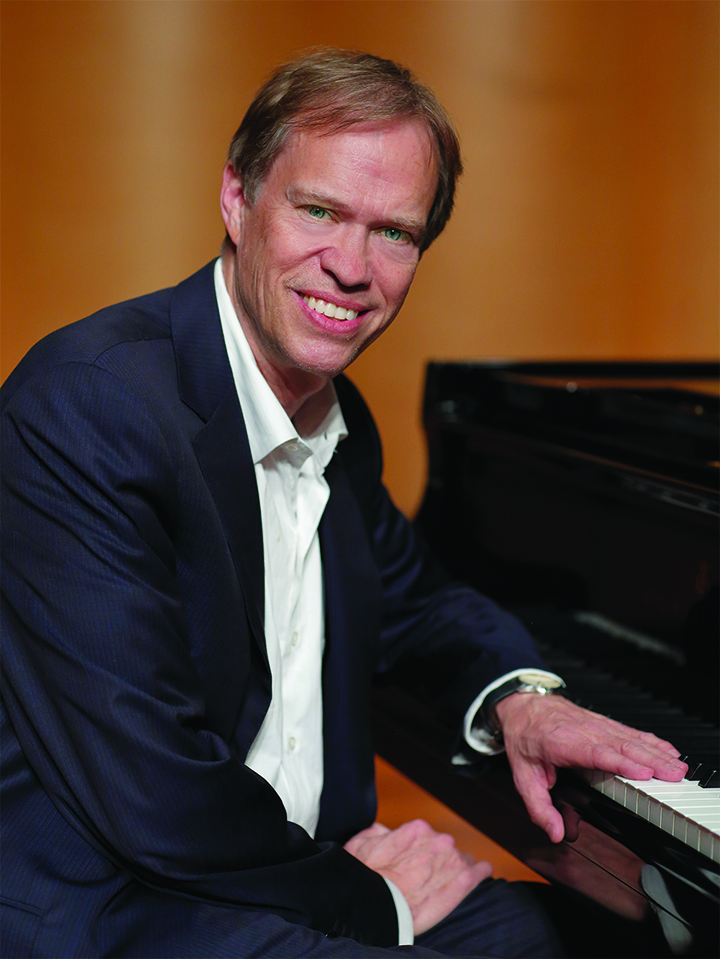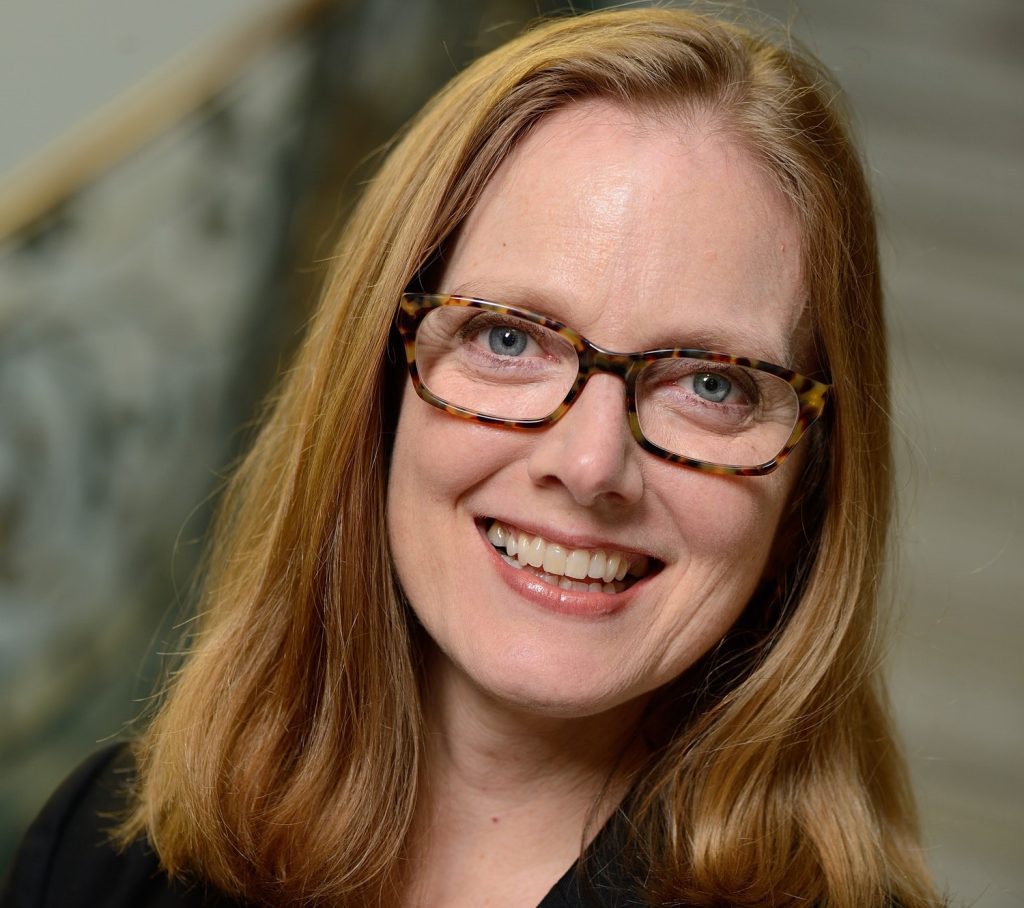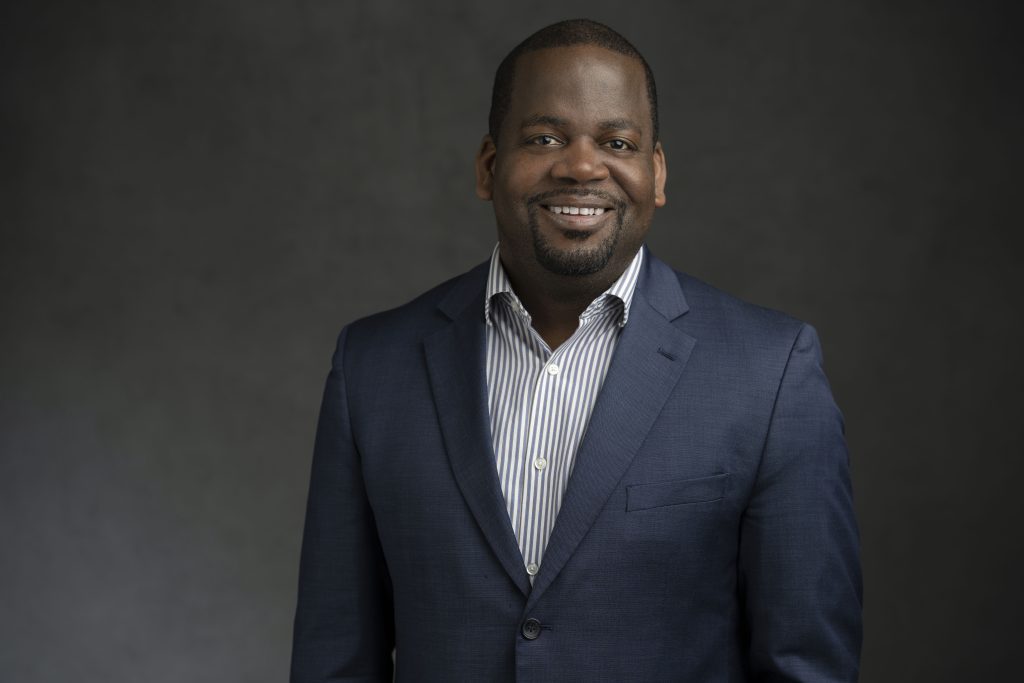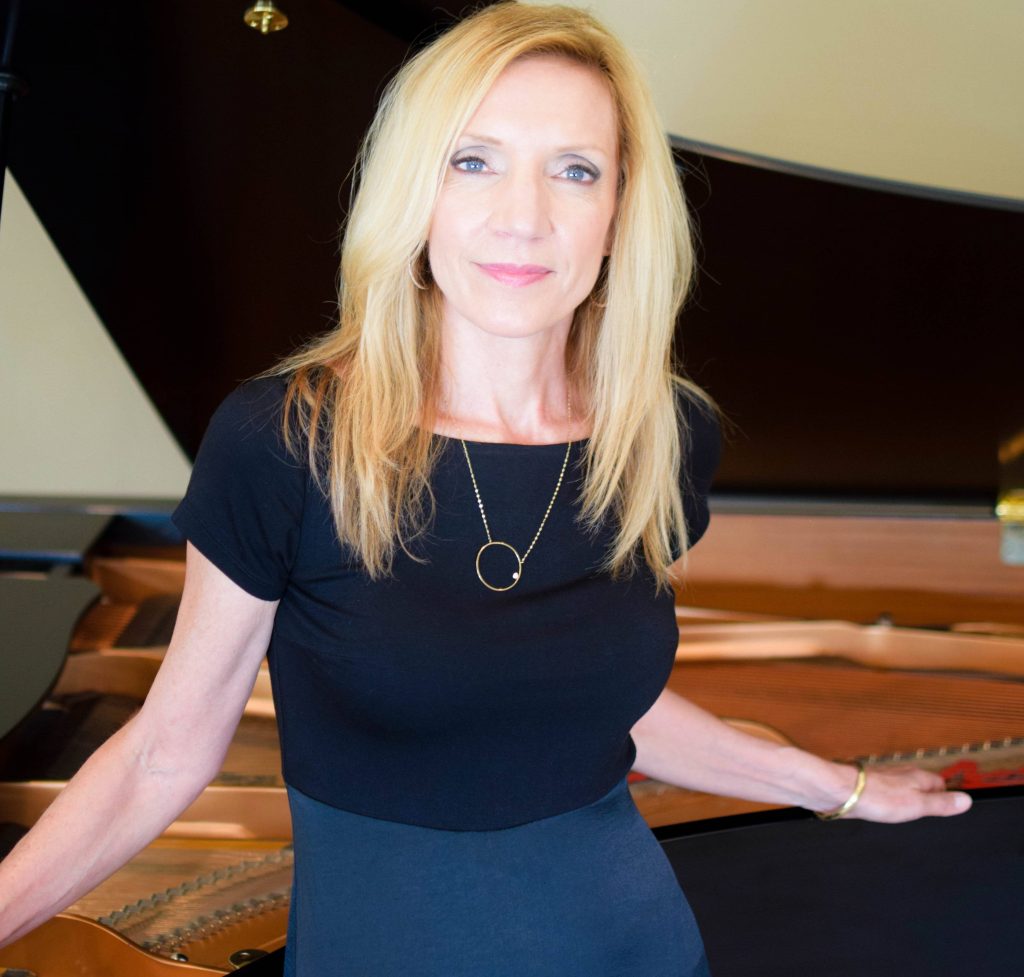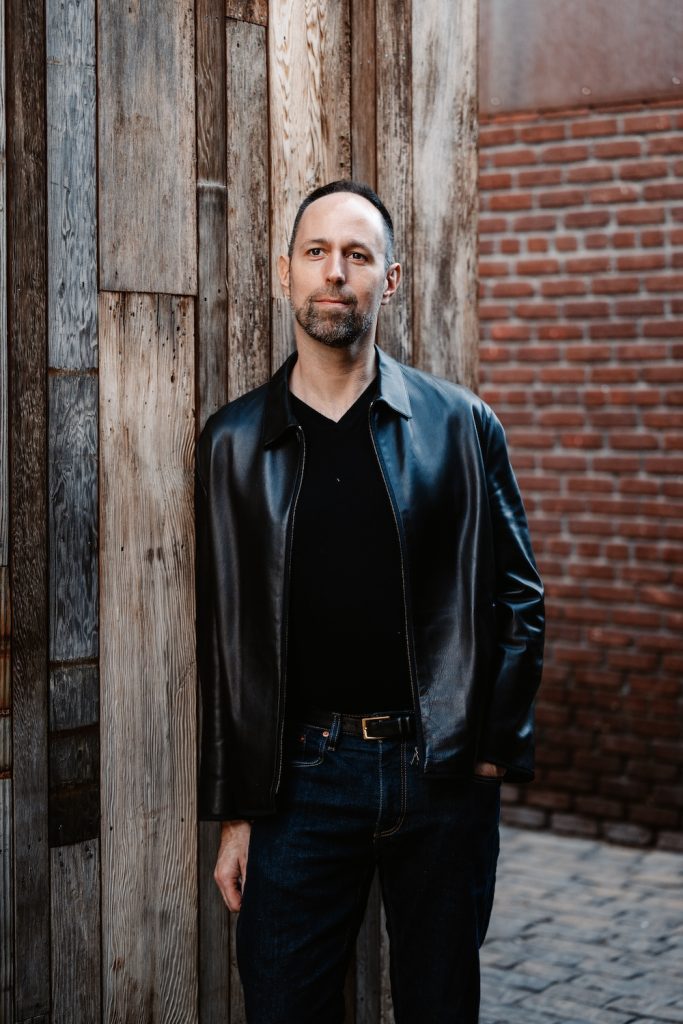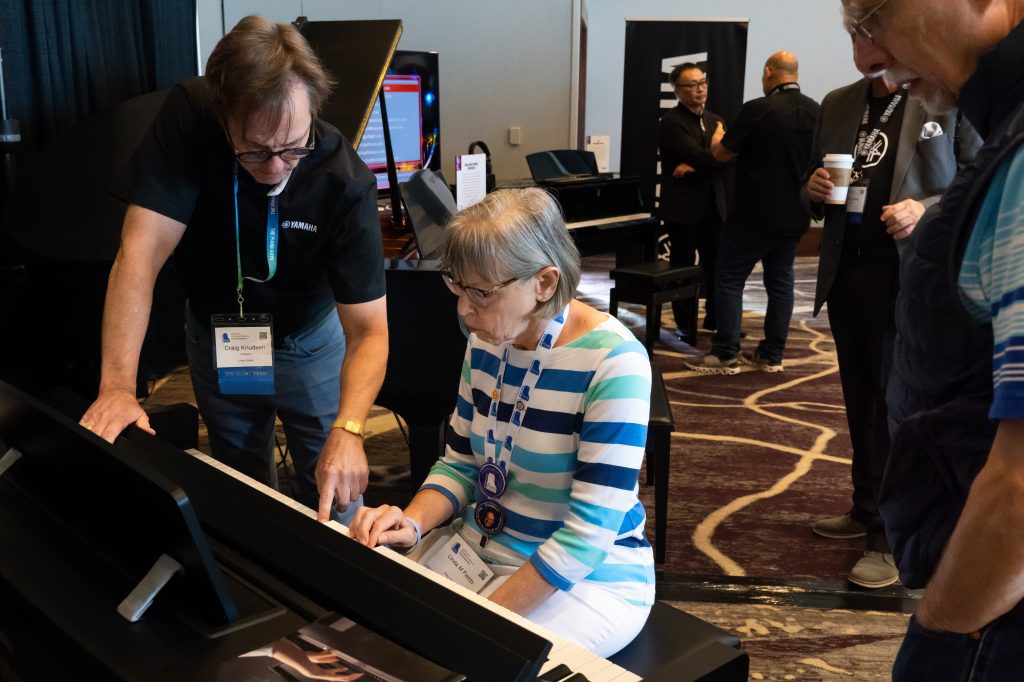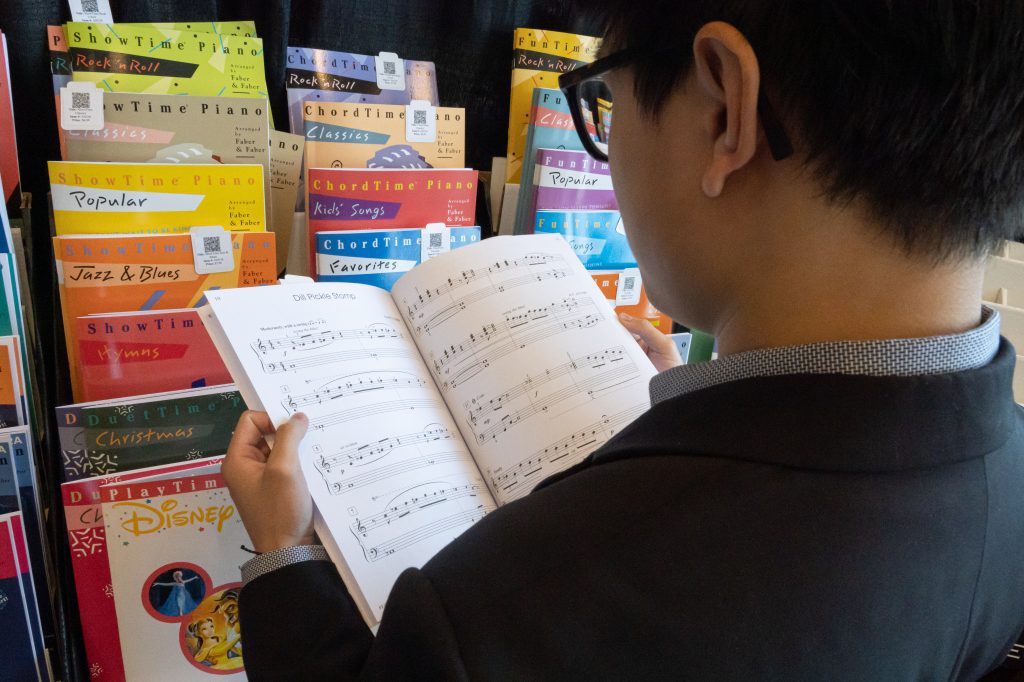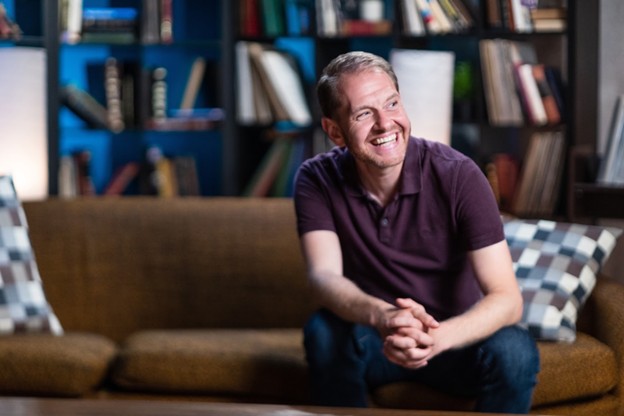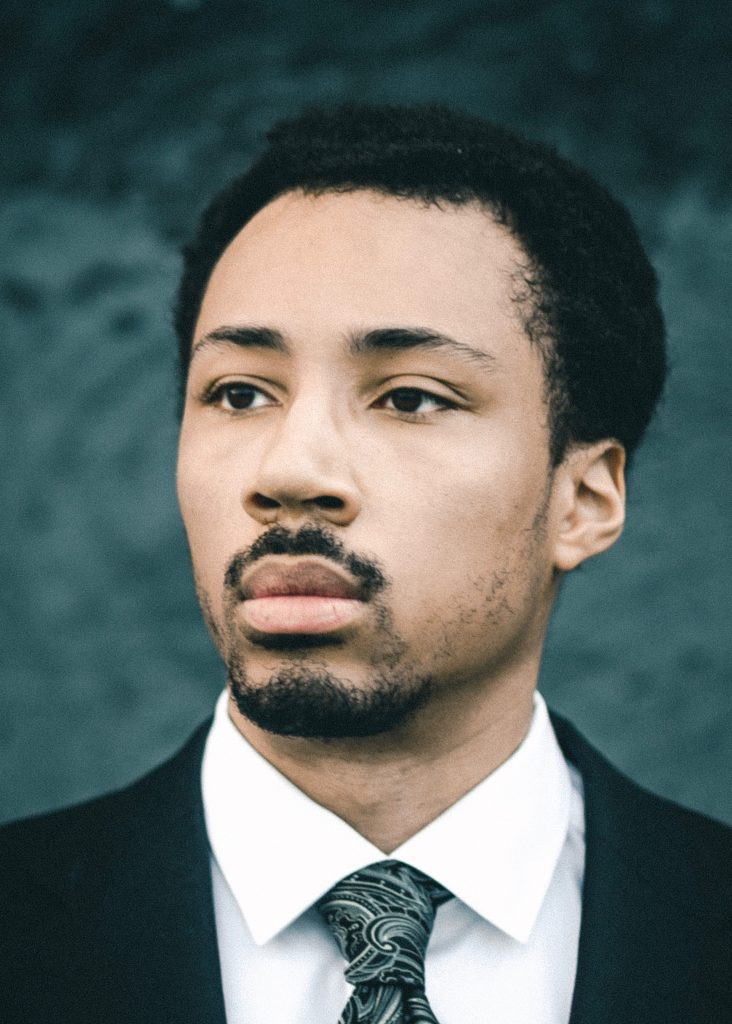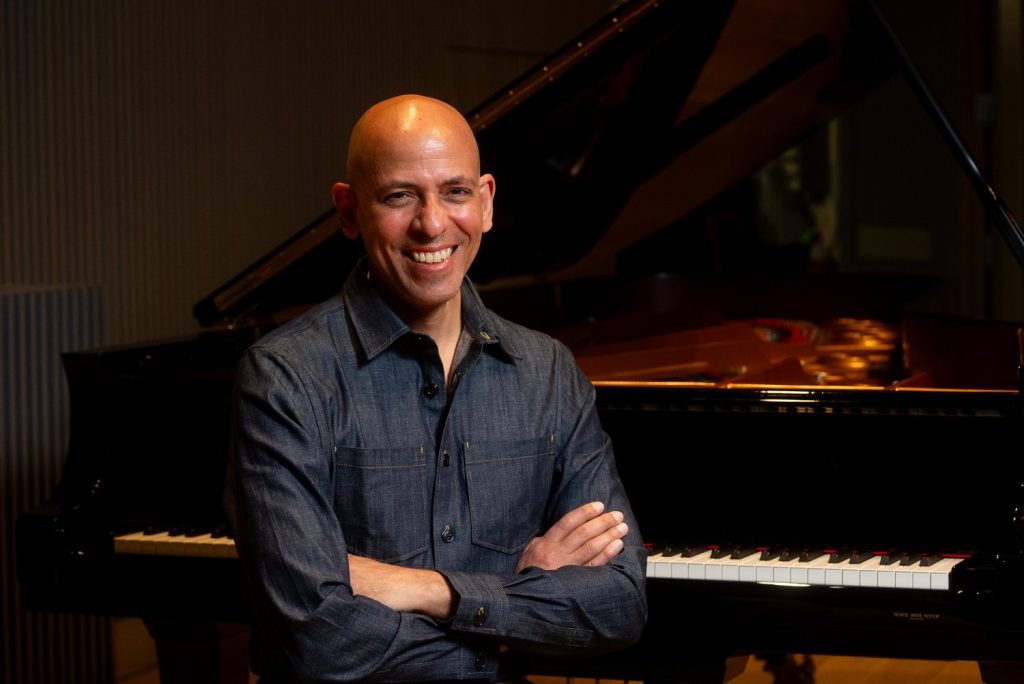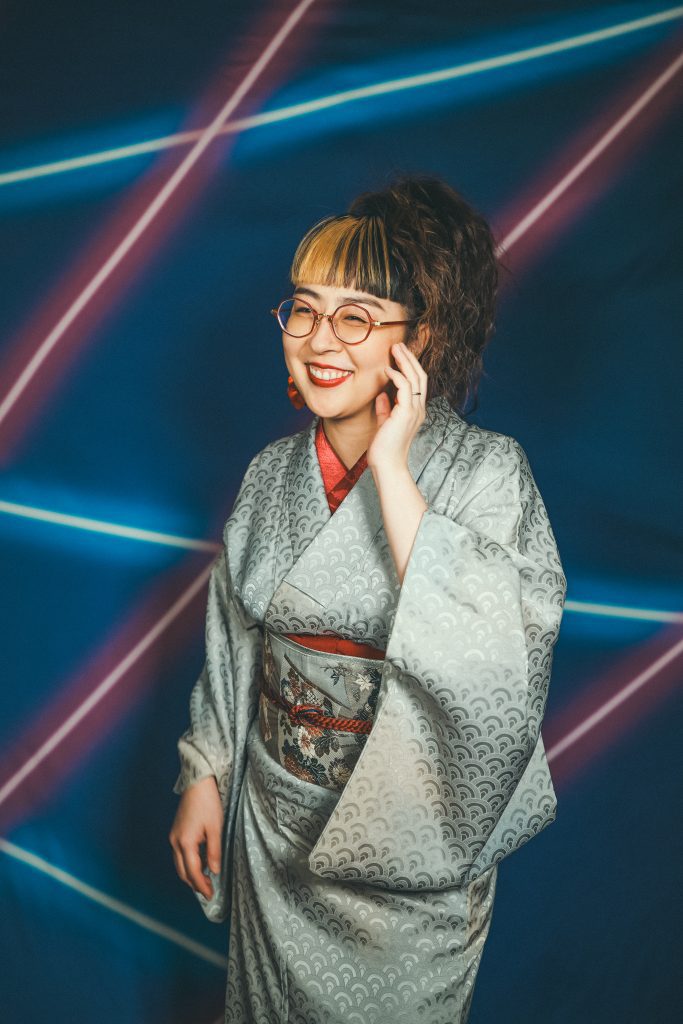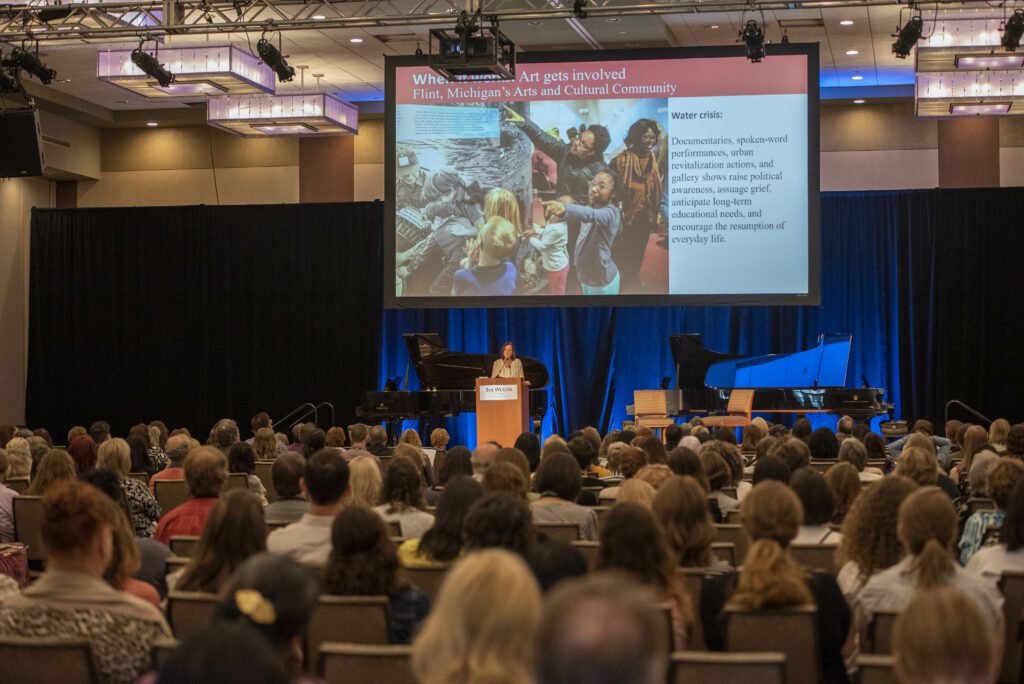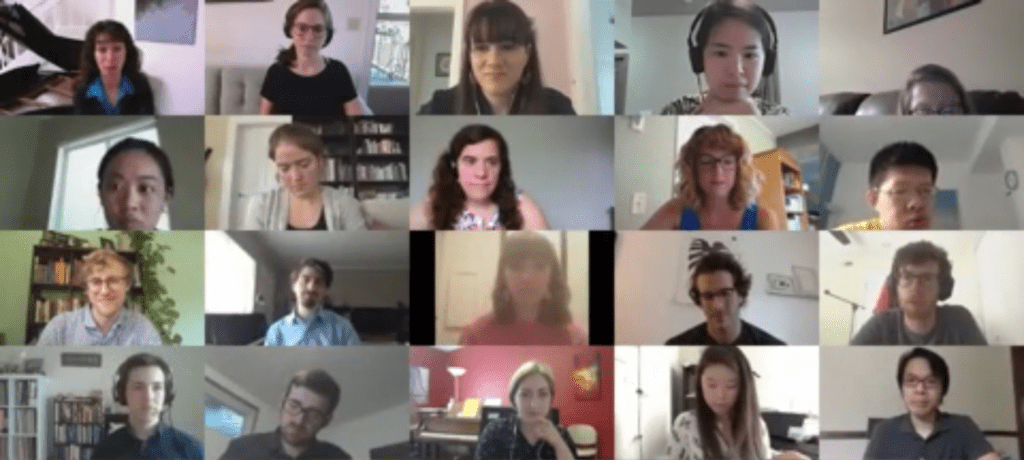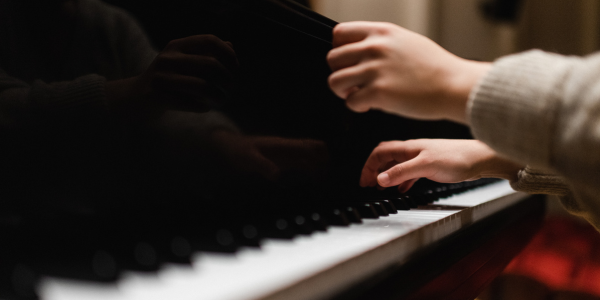The Piano Conference features an inspiring lineup of artists and teachers from July 23-26, 2025. Read more about the teaching demonstrations, lunchtime concerts, and New Professionals Concert below, and view the full schedule here. Want to hear these amazing demonstrations and concerts live? Register for The Piano Conference today!
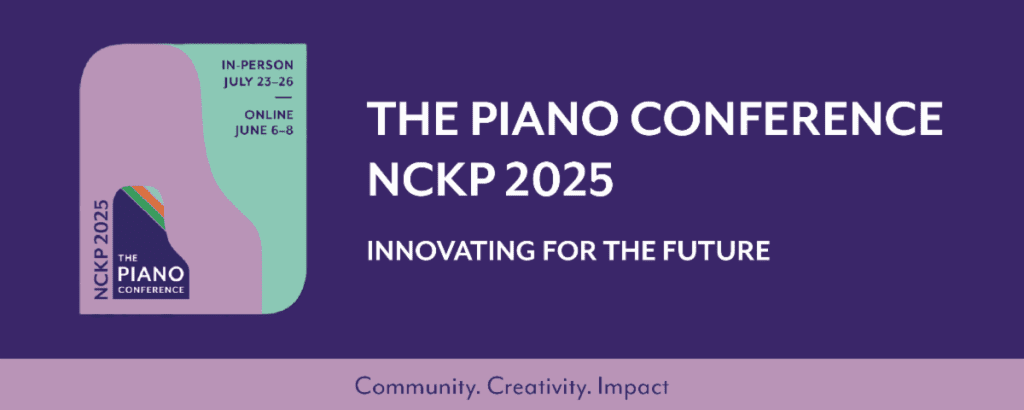
TEACHING DEMONSTRATIONS
The Transformation of Advanced Pianist to Artist
Friday, July 25 | 12:00–1:00 PM
Join leading teachers as they share videos of collegiate students that demonstrate growth of artistry over time. The teaching demonstration includes discussion of teaching approaches that have cultivated the emerging professional’s sense of self as an artist, through developing their technique, listening skills, and command at the piano.
Facilitator: Carolyn True
Teachers: Artina McCain, Spencer Myer, Alexandra Nguyen, Jerry Wong
Student Growth through Foundational Principles
Saturday, July 26 | 12:30–2:00 PM
Join leading teachers as they share multi-stage teaching videos that highlight student growth between lessons. The teaching demonstration includes a variety of student levels and a discussion focused on using foundational principles to spur the growth of understanding and development of skill.
Facilitator: Sara Ernst
Teachers: Mario Ajero, Margarita Denenburg, Annie Jeng, J. P. Murphy
LUNCHTIME CONCERTS
Thursday, July 24 | 12:30–1:30 PM
This program brings together a wide range of composers, from early Baroque to today’s emerging voices. It features contemporary works by Kevin Swenson, Nicholas Ho, Chen Yi, and Alexina Louie, alongside Italian composer Teresa Procaccini and French Baroque pioneer Elisabeth Jacquet de la Guerre.
Friday, July 25 | 1:00–2:00 PM
This concert features works by 20th- and 21st-century composers with pieces that share personal experience and creative ideas. The program includes Florence Price, Jocelyn Hagen, Eugene Astapov, and Momoro Ono, as well as virtuosic performances of works by Lowell Liebermann and a dynamic arrangement of Danse Macabre by Liszt, Horowitz, and Sean Bennett.
NEW PROFESSIONALS CONCERT
Thursday, July 24 | 5:00–6:00 PM
This concert showcases the artistry and perspectives of emerging pianists, offering fresh interpretations of a diverse range of works. The program features music by George Walker, Emma Lou Diemer, Leoš Janáček, Christian Hurtado Carrillo, Władysław Szpilman, Grażyna Bacewicz, Alexandre Arutunian, and Arno Babadjanian.
MORE ON THE PIANO CONFERENCE: NCKP
- THE PIANO CONFERENCE: NCKP 2025
- WEBINAR: NCKP 2023 Committee Webinar: Facing the Future with Jason Sifford
- PIANO MAGAZINE: Some reflections on the 2005 National Conference on Keyboard Pedagogy (NCKP) by Elvina Truman Pearce
- WEBINAR: NCKP 2023 Committee Webinar: How to Practice Jazz and Improvisation with Jeremy Siskind
- WEBINAR: Teaching Demonstration (NCKP Rebroadcast) with Marvin Blickenstaff
- DISCOVERY PAGE: The Benefits of NCKP: The Piano Conference and Why You Should Attend by Marvin Blickenstaff
- DISCOVERY PAGE: What to Expect at The Piano Conference: NCKP 2025: From the Inclusive Teaching Track and Keyboard Lab Presentations by Derek Kealii Polischuk and Sara Ernst
- DISCOVERY PAGE: What to Expect at The Piano Conference: NCKP 2025: From the Technology and New Professionals Tracks by Stella Sick and Allison Shinnick Keep
- DISCOVERY PAGE: What to Expect at The Piano Conference: NCKP 2025: From the International Track by Luis Sanchez
- DISCOVERY PAGE: What to Expect at The Piano Conference: NCKP 2025: From the Collaborative Performance and Research Committee Chairs by Sara Ernst, Alexandra Nguyen, and Alejandro Cremaschi
- DISCOVERY PAGE: What to Expect at The Piano Conference: NCKP 2025: From the Performance Practice, Teaching Adults, and Business & Entrepreneurship Committee Chairs by Sara Ernst, Andrew Cooperstock, Jackie Edwards-Henry, and Andy Villemez
- DISCOVERY PAGE: What to Expect at The Piano Conference: NCKP 2025: From the Creative Music Making, Independent Studio Teachers, and Young Musicians Committee Chairs by Sara Ernst, Jason Sifford, Janet Tschida, and Jeremy Siskind
- DISCOVERY PAGE: What’s New at The Piano Conference: NCKP 2025 by Sara Ernst, Michaela Boros, and Megan Hall
